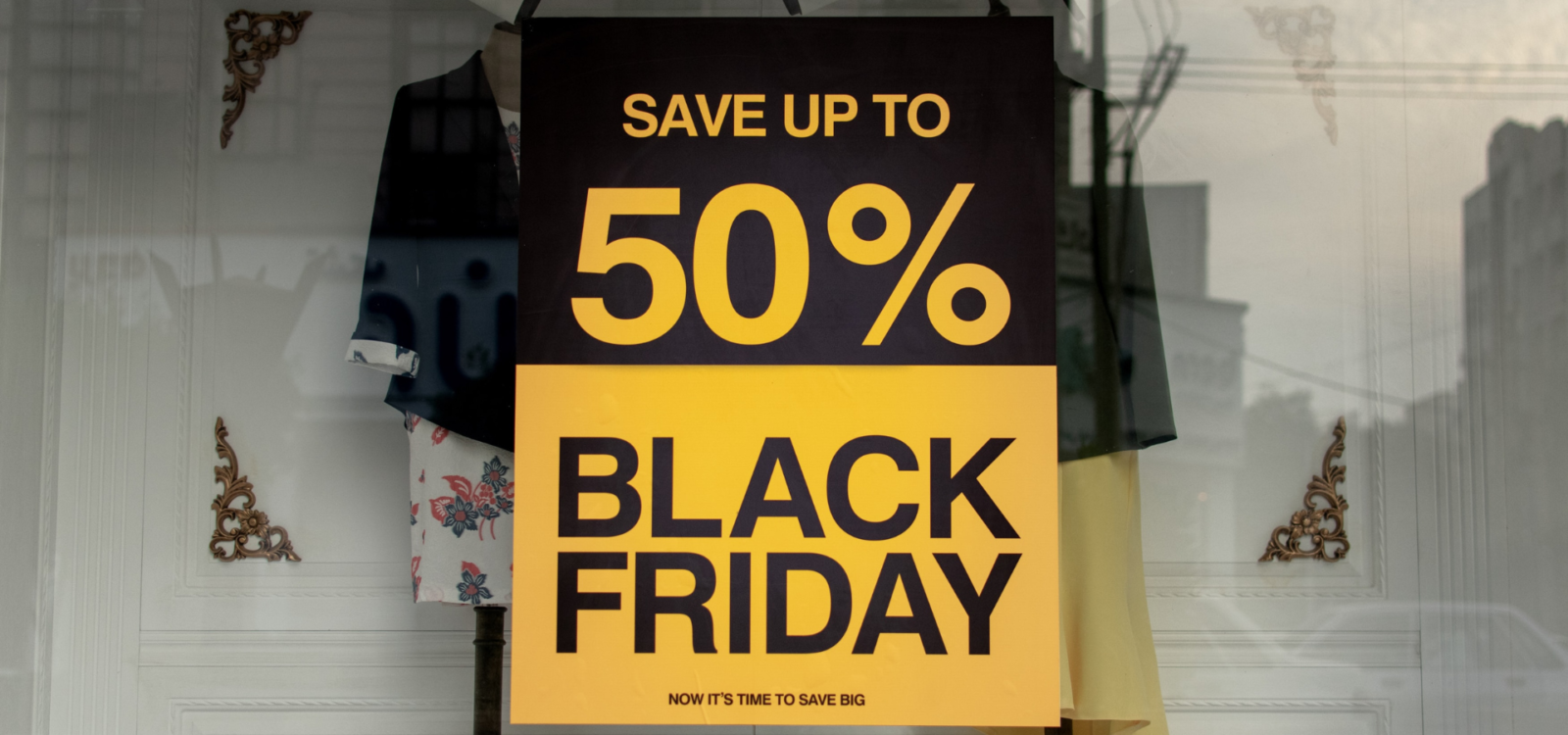
GOOD for Business
GOOD For Business is a regular roundup of some of the most pertinent global stories from the world of Purpose.
Sign up to receive GOOD For Business as a newsletter straight to your inbox every other Friday on the link here.
Breaking down Black Friday (and hopefully building back better)
Black Friday (and Christmas by extension) is culturally complicated. Pre-dating the purpose movement, it is at its core, utterly purpose-free – the message by design has always been “buy fast, buy more”. But over the last 5 years, the annual spending holiday has increasingly been frowned upon. Over half of UK shoppers believe it to be, purely, a marketing ploy (Ello, 2020). But, given the times of austerity in which we live, and despite mounting pushback from climate circles, the occasion is still popular – online sales reached a record-breaking $9.12 billion in the US (CNBC).
Given this tension, where consumers’ ethical aspirations are increasingly challenged by increased consumer activity during Black Friday, we’re diving deeper into the three ways we’ve identified that consumers and retailers are behaving during this time of year.
The ethical loyalists
Discounts are not everything to ethical loyalists. Whilst Black Friday deals, combined with tighter budgets, can potentially lure well-meaning customers away from ethical products and purposeful businesses, this behaviour is not distributed equally across the generations. Older groups are more likely to be enticed. Not younger ones.
For example, Emarsys’ second annual Customer Loyalty index found that across sectors, those who were 55+ were between 10-20% more likely to abandon a beloved brand in the face of a 25% price increase than the 25-34 cohort. Further insight suggests that younger consumers are more likely to remain loyal to brands with an ethical proposition. In fact, 34% of those aged 25 to 34 indicated that they had actually switched from a brand due to poor sustainability practices.
Also, interesting to note that only 24% of consumers say that they are loyal to the brands they shop with during Black Friday – one bargain a year is not a compelling driver for a longer relationship (Ello). While the threat to ethically produced and priced product remains, tapping into the desire for good from Millennials and Gen Z remains a strong behavioural motivator.
The boycotters
Boycotting Black Friday has continued to grow in popularity the last few years – both by consumers and brands. Last year, a third of UK consumers were planning on avoiding Black Friday altogether (Ello), spurred on by the environmental impact of the event and movements like Make Amazon Pay. This is not exclusively a customer trend; this year 86% of small businesses stated an intention to opt out of black Friday promotions completely (BIRA). It seems that placing a brand in opposition to the ideology of overconsumption is now a method of maintaining customer trust – and for now, at least, is enjoying growing support.
The purpose injectors
Instead of a full opt-out, it is also increasingly popular for brands to subvert the sales-driven motivation of the holiday in favour of something more meaningful. Fashion brands Rixo and Me+Em have adopted the ethos of ‘donate over discount’, giving portions of purchases to charities. Bag maker Freitag invited customers to exchange items on the S.W.A.P. (shop without any payment) platform. Alternatively, retailers in Chicago are utilising the holiday to platform underrepresented producers for Black Shop Friday, inviting Black Friday shoppers to inject income into black-owned businesses throughout the city. Much like a total boycott, authentic purpose-driven storytelling and creative solutions that breathe new meaning into Black Friday can become a positive brand-building exercise.
In conclusion
So, what does this all mean? While engaging in Black Friday discounts as a brand might lead to a short-term injection of cash, in the long term it does little to garner loyalty or admiration from customers, particularly the emerging dominant Gen Zers. For brands seeking more sustainable relationships with consumers, there are alternative ways – from a full boycott to a re-interpretation of how the occasion is used. This means, ultimately, there are still plenty of ways to continue to be, and do, good.


